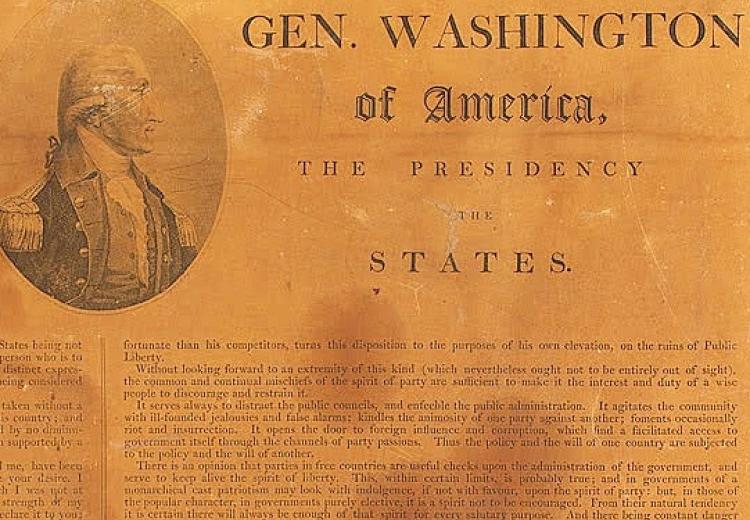2022 (857)
2023 (2384)
2024 (1325)

Lesson Plan
Lesson 1: U.S. Political Parties: The Principle of Legitimate Opposition

"However [political parties] may now and then answer popular ends, they are likely in the course of time and things, to become potent engines, by which cunning, ambitious, and unprincipled men will be enabled to subvert the power of the people and to usurp for themselves the reins of government, destroying afterwards the very engines which have lifted them to unjust dominion."
—President George Washington, Farewell Address, 1796.
Fear of factionalism and political parties was deeply rooted in Anglo-American political culture before the American Revolution. Leaders such as George Washington and Thomas Jefferson hoped their new government, founded on the Constitution, would be motivated instead by a common intent, a unity. Though dominant, these sentiments were not held by all Americans. A delegate to the Massachusetts ratifying convention, for example, asserted that “competition of interest…between those persons who are in and those who are out office, will ever form one important check to the abuse of power in our representatives.” (Quoted in Hofstader, p. 36) Hamilton argued from a slightly different perspective in Federalist #70: “In the legislature, promptitude of decision is oftener an evil than a benefit. The differences of opinion, and the jarrings of parties in that department of the government, though they may sometimes obstruct salutary plans, yet often promote deliberation and circumspection, and serve to check excesses in the majority.”
Political parties did form in the United States and had their beginnings in Washington's cabinet. Jefferson, who resigned as Washington's Secretary of State in 1793, and James Madison, who first began to oppose the policies of Alexander Hamilton while a member of the House of Representatives, soon united, as Jefferson wrote in his will, "in the same principles and pursuits of what [they] deemed for the greatest good of our country" (on the Thomas Jefferson Digital Archive, a link from the EDSITEment-reviewed website The American President). Together, they were central to the creation of the first political party in the United States. In the meantime, those who supported Hamilton began to organize their own party, thus leading to the establishment of a two-party system.



